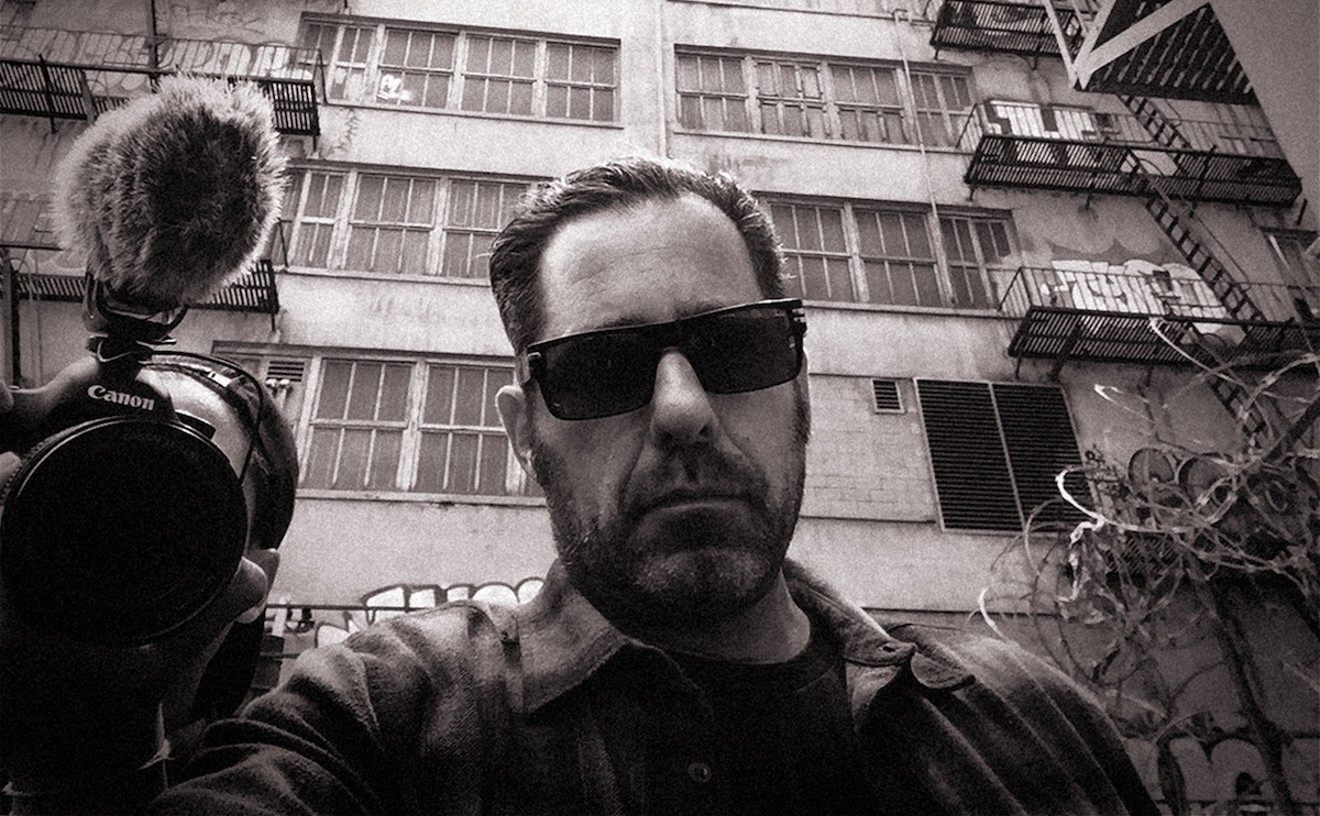When I saw the new Actors' Playhouse production of 1776, a row of youngsters was seated immediately behind me. Before showtime, they were discussing the election. A 13-year-old boy said, "Don't be stupid. If Obama wins, everyone will love America."
A 10-year-old replied, "Nuh-uh. Barack Obama doesn't even love America."
They kept up the discussion, in whispers, well into the play. At first I was annoyed; then I was charmed. 1776 has everything to do with the moment. These days, we are all speaking the language of Samuel Adams and Benjamin Franklin, because we, like they, are living in historic times.
You'll have a good time going to see 1776, which won the 1969 Tony for Best Musical with music by Sherman Edwards, a pop songwriter who wrote just this one score for Broadway. It's fairly clear he didn't give a damn about the way things were done there. This is one of the least musical musicals you'll ever see — during one scene, more than 20 minutes elapse without the orchestra playing a note, and throughout the performance, Edwards disregards incidental music and recitative.
The play hones in on a very specific event and location in its wild, violent namesake year, restricting itself to the actions of congressmen in the days leading up to the signing of the Declaration of Independence. It's a mistake to pay too much attention to Sherman and book writer Peter Stone's version of events. They take considerable liberty with the historical record, all but subsuming Samuel Adams into the person of his brother, John. They picture Ben Franklin as a pre-revolutionary abolitionist, when in fact he was not an abolitionist until the 1780s. And they kill off Congressman Caesar Rodney about 10 years too early. These are just some of Edwards and Stone's most obvious fudgings. Everywhere in 1776, the chronology of actual historical events, and even the date of the signing itself, is subtly skewed to suit the play's dramatic needs.
And this is just fine. Sherman and Stone are more mythmakers than historians, and 1776 is better for it. The sight of sweaty, overdressed politicians arguing over important policy matters was as dull a spectacle in the 1700s as it is today, but there is nothing dull about 1776.
Right now, on the Miracle Theatre's stage, one month before what Joe Biden recently referred to as "the most important election of our lifetime," an enormous and enormously talented cast is dusting off America's most precious founding myth and imbuing it with a humanity, sense of humor, and sense of urgency that has gone missing from every reenactment I've ever seen. (It was certainly absent in the 1972 screen adaptation of this play.) Stone's dialogue is sometimes dated — at moments you feel like you're watching the 18th Century through the lens of the Sixties, which of course you are — but the Actors' Playhouse cast seems to be having enormous fun with it.
Ken Clement plays the serenely dour Ben Franklin like, well, Ben Franklin: perennially the smartest guy in the room and too wise to take his blessings too seriously. At first glance, you think the dude should be more imposing. Then, after a minute, you begin to think this is probably how it really was. Watch Clement tie Jim Ballard (playing Richard Henry Lee) in knots, convincing him that riding off to Virginia to get a resolution for independence is somehow his idea. Clement's benevolent manipulations make Franklin seem like America's answer to Dumbledore.
This is just one of a stageload of performances that put flesh on the bones of myth without taking away the myth's grandeur. Gary Marachek, as John Adams, is supposed to be the star here, and he is remarkable — I guarantee you haven't seen this many layers of soul in another character in any recent musical comedy. As he debates his fellow congressmen with a single-minded (and ahistorical) truculence, he makes independence sound so insufferably stuffy that you'll be excused for wanting to join the Tories. Then, moments later, you feel like going all to pieces when, sad and alone, he fumblingly composes letters to his wife.
That wife, Abigail, is played by Colleen Amaya, and though her appearances onstage are few and brief, they herald some of the play's most affecting moments. She appears, sings something sweet and wise to Adams, and then disappears — the implication is that, whatever these men are fighting for, it's not in here, in Congress, but out there in America. The point is driven home again and again, as every one of 1776's most stirring moments come from small characters at the drama's periphery. I'm thinking most especially of a soldier boy, played by Javier Ignacio, who keeps dashing into Congress to deliver letters from George Washington. At the very end of Act I, he describes his battle experience in a song, "Momma Look Sharp." He begins high, with a supple, crystalline voice that sounds ready to swoop into falsetto. But it doesn't; it just goes up and up without ever hitting a break. You hold your breath, waiting for it, and just when you begin to think Ignacio is a real, live counter-tenor, he suddenly goes down, becomes gruff and weary and baritonal. His voice is unlike any I've ever heard, wrapped around a song so sad that it sounded like no ordinary voice could possibly have done it justice.
That voice coupled with even an irrelevant play would make 1776 a perfectly enjoyable night at the theater, but it's more than that. In other reenactments of American myths — Johnny Tremain, The Last of the Mohicans, Pride & Prejudice — the talk of the characters often sounds weirdly anachronistic. But now, with our leaders preoccupied by grave issues of foreign policy and American self-definition, it's very much of the moment. The chatter doesn't sound distant. We — even the kids in the row behind me — are speaking their language again.










